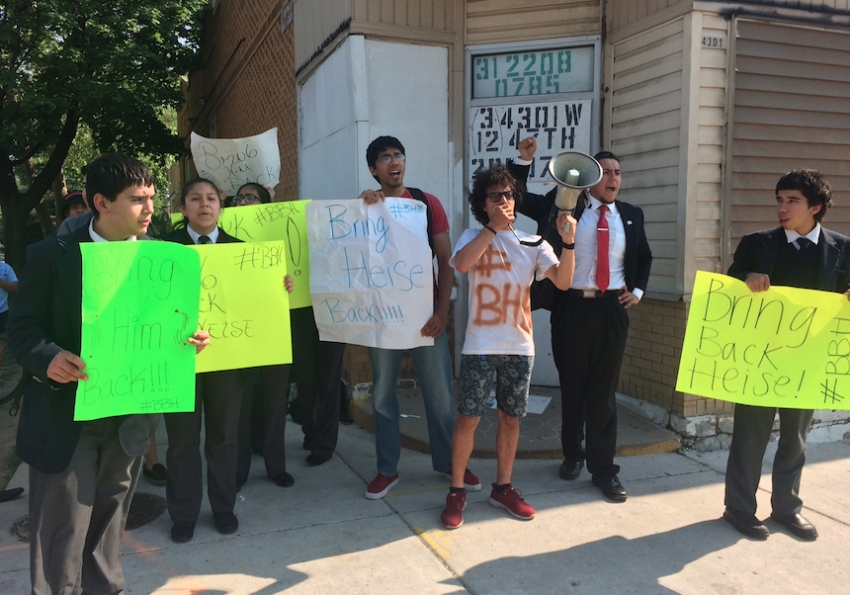Top school officials say Anderson is out, Cerf in as interim Newark schools chief

Top school officials in Newark are reporting that Cami Anderson will announce her resignation this week as state-appointed superintendent. One source says he expects Christopher Cerf, the former state education commissioner who hired Anderson in 2011, to be appointed interim superintendent.
A bigger shocker, however, is that the school officials and other sources expect the board to be given a role in selecting a permanent replacement for Anderson. “I’m very excited about this,” one source said. “I feel like we should be having a party.”
Rumors of her impending resignation have been resounding throughout the school system for the last few weeks–sparked primarily by her apparent decision to empty her office. Employees at 2 Cedar Street have said her office has been empty for days.
In the last few days, Anderson also has caved in on significant decisions–to make both East Side High School and Weequahic High School, both iconic institutions in the city, so-called “turnaround” schools.
The sources who reported Anderson’s resignation and Cerf’s appointment say they expect a formal announcement Monday. The Newark school board is expected to meet Tuesday night at a regular monthly meeting. Anderson has not attended a public session of the board since January, 2014.
The breakthrough, according to sources who would not speak for the record, came in private talks between school board officials and members of the state board of education. Mark Biedron, the president of the state school board, apparently has come to Newark and initiated “conversations” with critics of Anderson.
Four members of the school board–Ariagna Perello, its president; Marques Aquil-Lewis, its vice president and Antoinette Baskerville-Richardson and Donald Jackson spoke at a state school board meeting earlier this month.
“Too much has been happening for the state school board to ignore,” said one source, citing the decision by Lamont Thomas, principal of nationally known Science Park High, to resign, and the extraordinary decision by the principal of Top school officials say Anderson is out, Cerf in as interim Newark schools chief | Bob Braun's Ledger:














